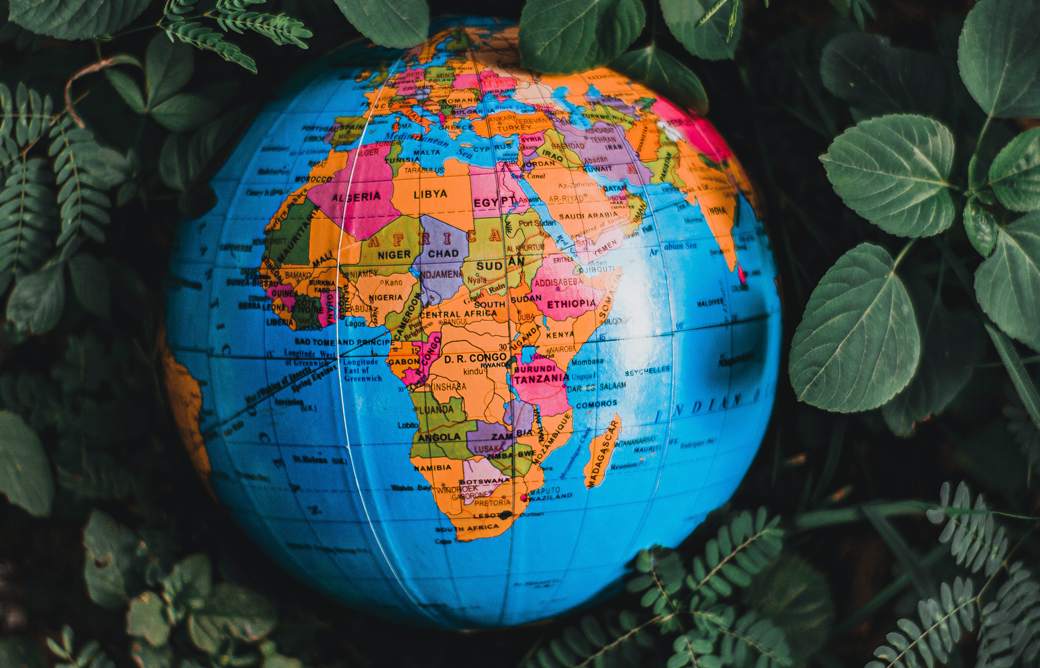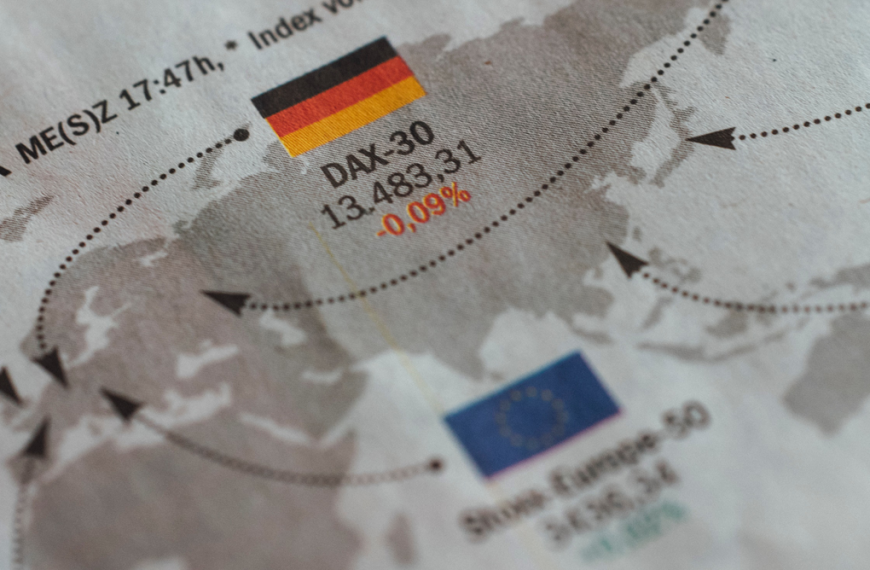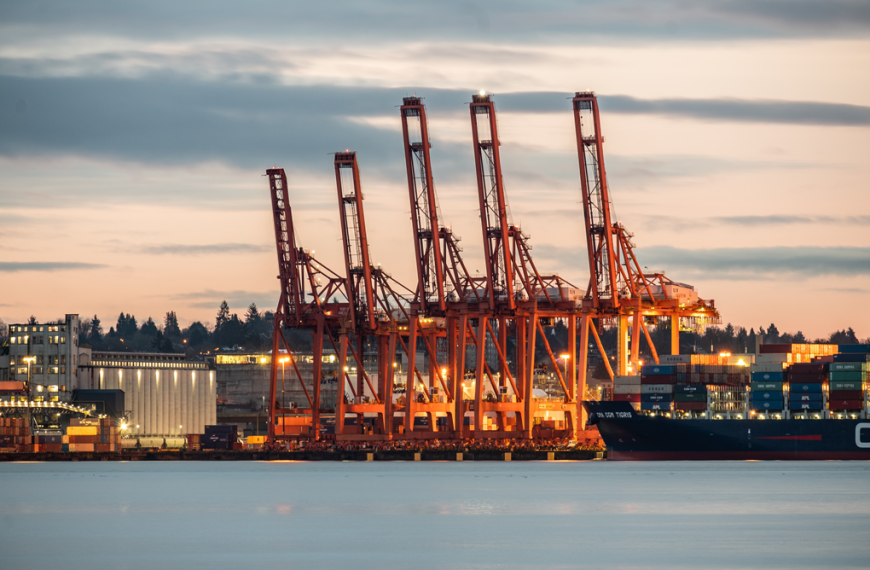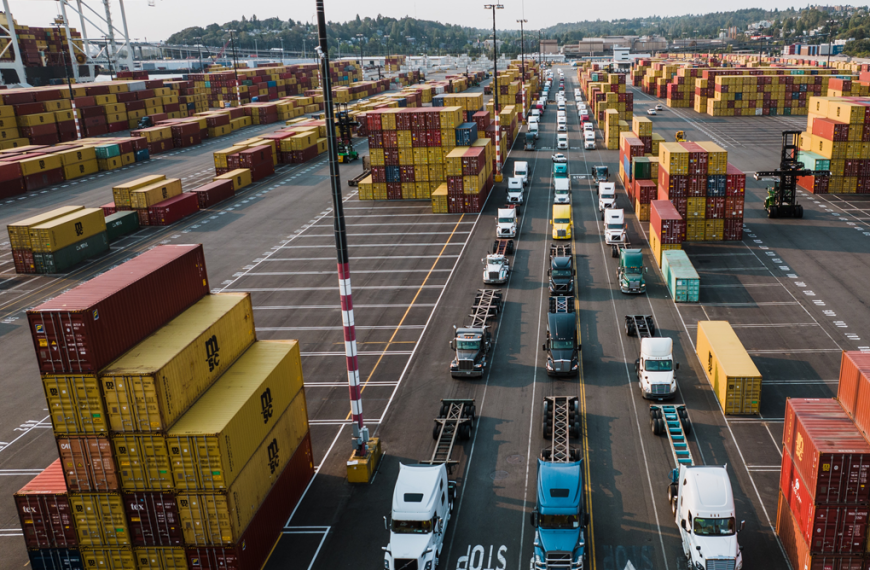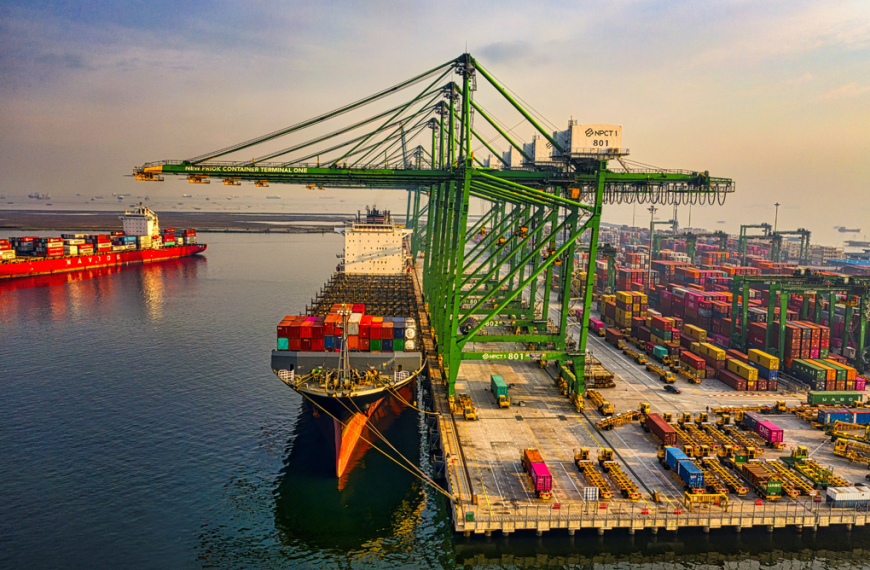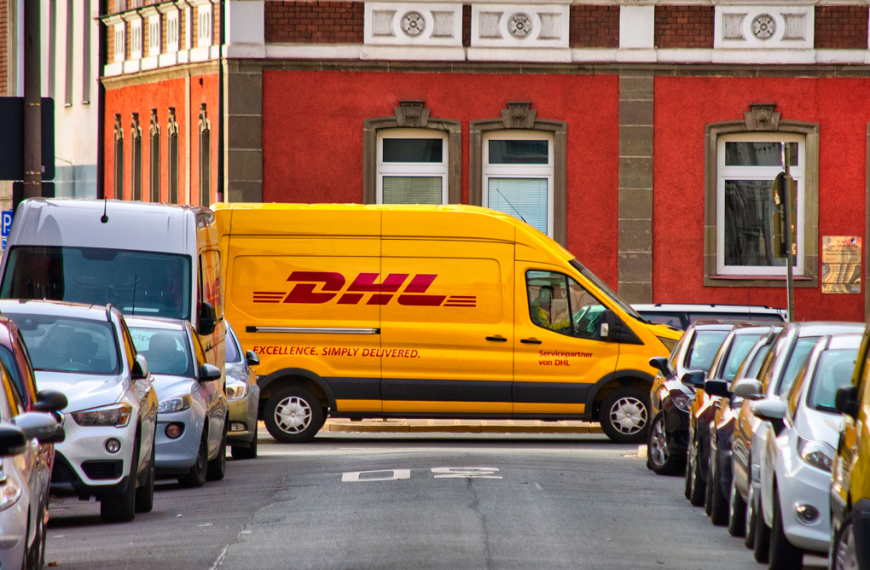Optimize your freight forwarding in Africa with the power of technology. Explore digital platforms, automation, and real-time tracking for efficient logistics. Looking to optimize your freight forwarding process in Africa? Discover how technology can help streamline customs clearance, tracking, and more.
Africa is a vast and diverse continent with complex logistics challenges that require innovative solutions. Freight forwarding is a critical part of the logistics industry that enables the movement of goods across borders and oceans. In this article, we will explore the different modes of freight forwarding in Africa and how technology is transforming the industry.
Air Freight Africa
Air freight is a fast and reliable mode of transportation that is essential for time-sensitive and high-value goods. Many African countries have developed their aviation infrastructure and capabilities, making air freight a viable option. However, air freight costs are generally higher than other modes of transportation.
How Technology is Revolutionizing Air Freight in Africa
In recent years, the air freight industry in Africa has undergone a significant transformation, thanks to the adoption of new technologies. These technologies have brought about faster, more efficient, and cost-effective air freight services across the continent. In this article, we will explore some of the ways in which technology is transforming air freight in Africa.
Real-Time Tracking and Visibility
Gone are the days when tracking air freight meant relying on phone calls and emails. Today, real-time tracking systems have made it easier to track the location and condition of cargo. These systems use GPS, RFID, and sensors to provide real-time updates on the status of the shipment. This has led to increased efficiency, faster turnaround times, and reduced losses due to theft and damage.
Automated Processes
The air freight industry in Africa has also embraced automation to streamline its processes. Cargo management software has made it easier to manage the entire shipping process, from booking to delivery. Automated systems have also made it easier to handle documentation, customs clearance, and other paperwork, reducing the chances of errors and delays.
Improved Security Measures
Technology has also brought about significant improvements in security measures in the air freight industry. For instance, X-ray scanners and other screening technologies have made it easier to detect and prevent illegal shipments, such as drugs and weapons. This has not only made air freight safer but has also made it easier for legitimate shipments to get through customs quickly.
Drone Delivery
Drone technology is also beginning to make its way into the air freight industry in Africa. Drones can deliver packages quickly and efficiently, especially in areas with poor infrastructure. This technology has the potential to revolutionize air freight in Africa, especially for smaller packages and urgent deliveries.
Sea Freight Africa
Sea freight is the most common mode of transportation for international trade, and Africa is no exception. The continent’s vast coastline and strategic location make it an important gateway for global trade. However, sea freight requires significant lead time and infrastructure, such as ports and ships, which can be a challenge for many African countries.

How Technology is Revolutionizing Sea Freight in Africa
As the world becomes increasingly connected, sea freight continues to be a vital part of the global trade. Africa, in particular, is an important hub for sea freight, with many of its countries relying heavily on imports and exports to sustain their economies. Thanks to technology, sea freight in Africa is being transformed, making it more efficient, faster, and cost-effective.
Here are some ways technology is changing sea freight in Africa:
1. Automated Ports
Automated ports are becoming more prevalent in Africa, helping to improve efficiency and reduce the time it takes to load and unload cargo. With automated systems, containers can be tracked in real-time, and ships can be loaded and unloaded without the need for human intervention, reducing the risk of errors and delays.
2. Big Data and Analytics
Big data and analytics are being used to optimize shipping routes, reduce fuel consumption, and improve supply chain efficiency. By collecting and analyzing data on shipping routes, cargo volumes, and weather patterns, shipping companies can make informed decisions that help to reduce costs and improve delivery times.
3. Blockchain
Blockchain technology is being used to improve transparency and security in sea freight. By using blockchain, all parties involved in a transaction can access a secure, decentralized ledger that tracks the movement of goods from start to finish. This helps to reduce the risk of fraud and theft and ensures that all parties are held accountable.
4. Drones and Robotics
Drones and robotics are being used to inspect cargo and ships, reducing the need for human intervention and improving safety. Drones can quickly and safely inspect containers, while robotics can be used to load and unload cargo, reducing the risk of injury to human workers.
5. IoT
The Internet of Things (IoT) is being used to monitor cargo and shipping conditions in real-time. By using IoT sensors, shipping companies can track temperature, humidity, and other environmental conditions, ensuring that goods are transported under the optimal conditions.
Conclusion
Technology is transforming sea freight in Africa, making it faster, more efficient, and more cost-effective. With automated ports, big data and analytics, blockchain, drones and robotics, and IoT, shipping companies can optimize their operations, reduce costs, and improve delivery times. As technology continues to advance, we can expect to see even more innovation in the sea freight industry, further improving the way goods are transported around the world.
Inland Transport
Inland transport connects the ports and airports to the final destinations, such as warehouses and factories. In Africa, inland transport infrastructure is often underdeveloped and can cause delays and inefficiencies. However, technology solutions, such as digital platforms for cargo tracking and optimization, are improving the efficiency and reliability of inland transport.
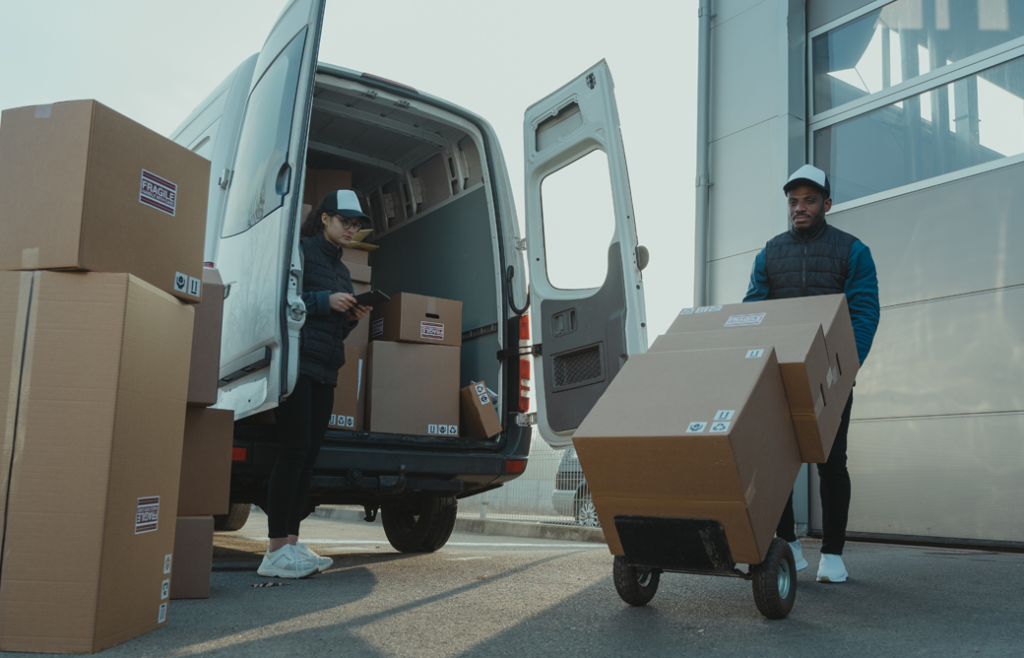
Customs Clearance
Customs clearance is a crucial part of freight forwarding, as it involves complying with regulations, documentation, and taxes. Customs clearance in Africa can be a complex and time-consuming process, with different rules and procedures in each country. However, technology solutions, such as electronic customs clearance systems, are simplifying the process and reducing delays and costs.
How Technology is Revolutionizing Customs Clearance in Africa
Customs clearance is a critical process that every business that engages in international trade must go through. In Africa, customs clearance has been a challenging process, with long delays and bureaucratic red tape being the norm. However, technology is transforming customs clearance in Africa, making it faster, more efficient, and more transparent.
Here are some ways technology is changing customs clearance in Africa:
1. Electronic Customs Clearance
Electronic customs clearance systems are being implemented in many African countries, replacing the traditional paper-based process. With electronic customs clearance, businesses can submit their documentation online, reducing the time it takes to clear goods through customs. This has resulted in a significant reduction in waiting times at border crossings and ports.
2. Data Analytics
Customs clearance authorities are increasingly using data analytics to identify potential risks and improve compliance. By analyzing large volumes of data, customs officials can quickly identify discrepancies, such as mismatches in cargo descriptions or fraudulent documentation, reducing the risk of smuggling and fraud.
3. Blockchain Technology
Blockchain technology is being used to improve transparency and accountability in customs clearance. By using a decentralized ledger, all parties involved in a transaction can access and verify information, reducing the risk of fraud and improving the security of data.
4. Mobile Technology
Mobile technology is being used to improve communication and access to information in customs clearance. Mobile apps and platforms allow businesses to track their shipments in real-time and receive alerts on any changes to the clearance process. This has helped to reduce the need for physical visits to customs offices, saving time and reducing costs.
5. Artificial Intelligence
Artificial Intelligence (AI) is being used to improve the accuracy and efficiency of customs clearance. AI-powered systems can quickly analyze and process large volumes of data, reducing the time it takes to clear goods through customs. AI can also be used to automate routine tasks, freeing up customs officials to focus on more complex issues.
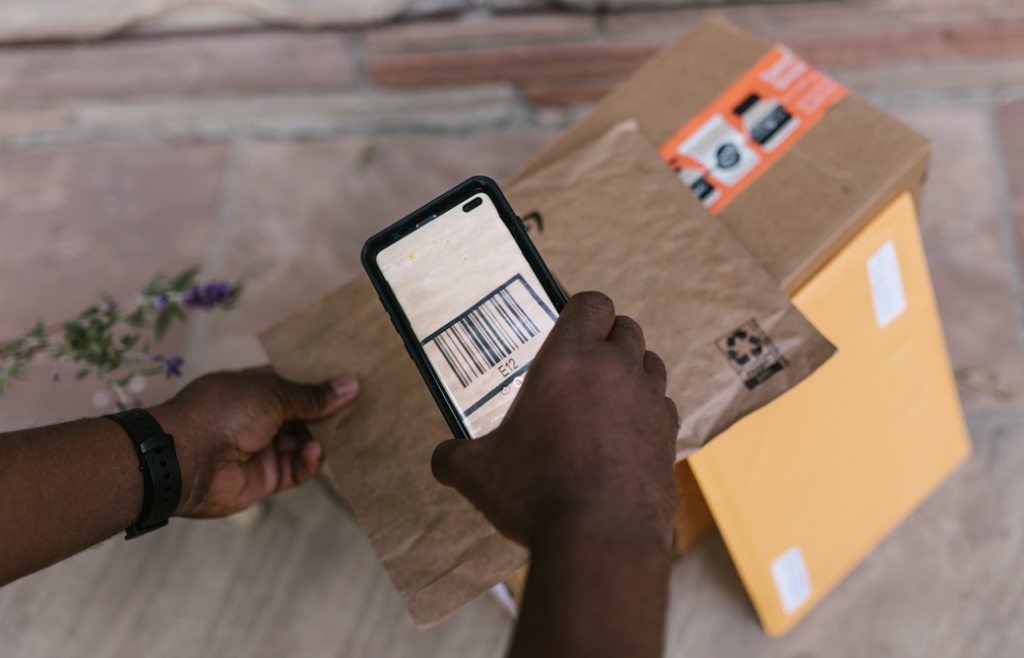
Conclusion
Technology is transforming customs clearance in Africa, making it faster, more efficient, and more transparent. With electronic customs clearance, data analytics, blockchain technology, mobile technology, and AI, customs clearance is becoming less of a barrier to international trade in Africa. As technology continues to advance, we can expect to see even more innovation in customs clearance, further improving the way businesses engage in international trade.
How Technology Can Optimise Freight Forwarding Process in Africa
Technology solutions are transforming the freight forwarding industry in Africa by improving efficiency, transparency, and visibility. Digital platforms for cargo tracking, optimization, and collaboration are making the logistics process more agile and responsive to changing customer needs. Artificial intelligence, big data, and the Internet of Things (IoT) are also enabling predictive analytics and proactive problem-solving, reducing risks and costs.
Africa is a continent with enormous potential for international trade. However, the logistics industry in Africa has faced many challenges over the years, including inadequate infrastructure, slow customs clearance processes, and lack of visibility in the supply chain. But technology has the power to transform the freight forwarding process in Africa, making it more efficient and effective.
Here are some ways that technology can optimize freight forwarding in Africa:
1. Digital Freight Forwarding Platforms
Digital freight forwarding platforms are becoming increasingly popular in Africa, providing a one-stop-shop for all logistics needs. These platforms enable businesses to manage their supply chain from end-to-end, including booking cargo, managing customs clearance, and tracking shipments in real-time. With these platforms, businesses can access a network of reliable service providers, and enjoy greater visibility and control over their shipments.
2. Automated Customs Clearance
Customs clearance has traditionally been a slow and cumbersome process in Africa. However, with the help of technology, customs clearance can now be automated. Automated customs clearance systems can improve efficiency, reduce delays, and lower costs. By using electronic documentation and data analytics, customs authorities can quickly and accurately process large volumes of cargo, reducing the need for manual intervention.
3. Real-time Tracking and Visibility
Real-time tracking and visibility are essential for the effective management of the supply chain. By using IoT sensors and GPS technology, businesses can track their shipments in real-time, providing valuable insights into the status and location of cargo. This information can be used to optimize routes, reduce costs, and improve delivery times.
4. Data Analytics
Data analytics can provide valuable insights into supply chain operations, allowing businesses to identify bottlenecks and inefficiencies. By analyzing data on cargo volumes, shipping routes, and delivery times, businesses can optimize their logistics processes, reducing costs, and improving delivery times.
5. Robotics and Automation
Robotics and automation can improve efficiency in the freight forwarding process, reducing the need for human intervention. For example, robotic arms can be used to load and unload cargo from ships, reducing the risk of injury to human workers. Similarly, automated warehouses can improve efficiency and reduce costs.
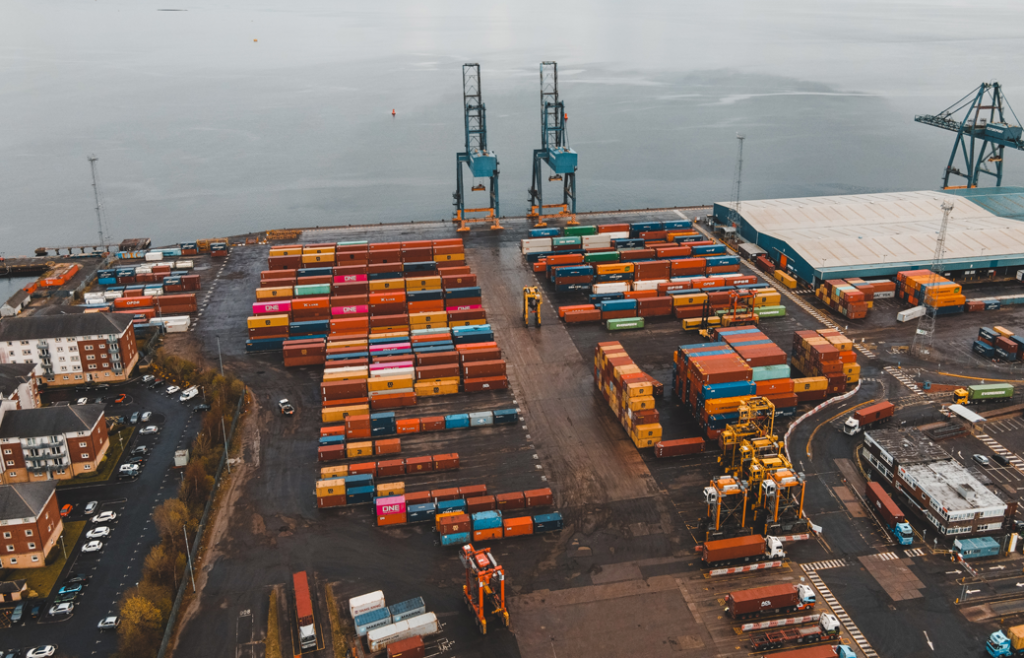
Conclusion
The logistics industry in Africa is undergoing a transformation, thanks to the power of technology. By leveraging digital platforms, automated customs clearance, real-time tracking, data analytics, and robotics and automation, businesses can optimize their freight forwarding processes, reducing costs, improving delivery times, and increasing customer satisfaction. As technology continues to advance, we can expect to see even more innovation in the freight forwarding industry, transforming the way businesses engage in international trade in Africa.
Freight forwarding is an essential part of the logistics industry in Africa, and technology solutions are transforming the way it operates. By leveraging the benefits of technology, companies can optimize their logistics operations and gain a competitive edge in the market.
Frequently Asked Questions (FAQs)
Who is the largest freight forwarder in Africa?
The largest freight forwarder in Africa is Bollore Transport and Logistics. Bollore operates in 46 African countries, providing a comprehensive range of logistics services, including freight forwarding, customs clearance, and warehousing. With a fleet of over 20,000 vehicles, Bollore is well-positioned to serve the logistics needs of businesses across the continent.
Which country is best for freight forwarding?
There is no one-size-fits-all answer to this question, as the best country for freight forwarding depends on the specific needs of your business. However, some countries in Africa are considered to have more developed logistics infrastructure than others. For example, South Africa, Kenya, and Morocco are often considered to have some of the most developed logistics industries in Africa.
Which African countries have the best logistics?
Several African countries have made significant strides in developing their logistics infrastructure in recent years. Some of the countries considered to have the best logistics infrastructure in Africa include South Africa, Kenya, Morocco, Egypt, and Ghana. These countries have invested in improving their transport networks, developing modern ports, and implementing technology solutions to improve the efficiency of their logistics processes.
What is the biggest freight forwarding company?
The biggest freight forwarding company in the world is DHL, with a market share of around 13%. DHL operates in over 220 countries and territories worldwide, providing a comprehensive range of logistics services, including freight forwarding, warehousing, and transportation. Other major freight forwarding companies include Kuehne+Nagel, DB Schenker, and Panalpina.

